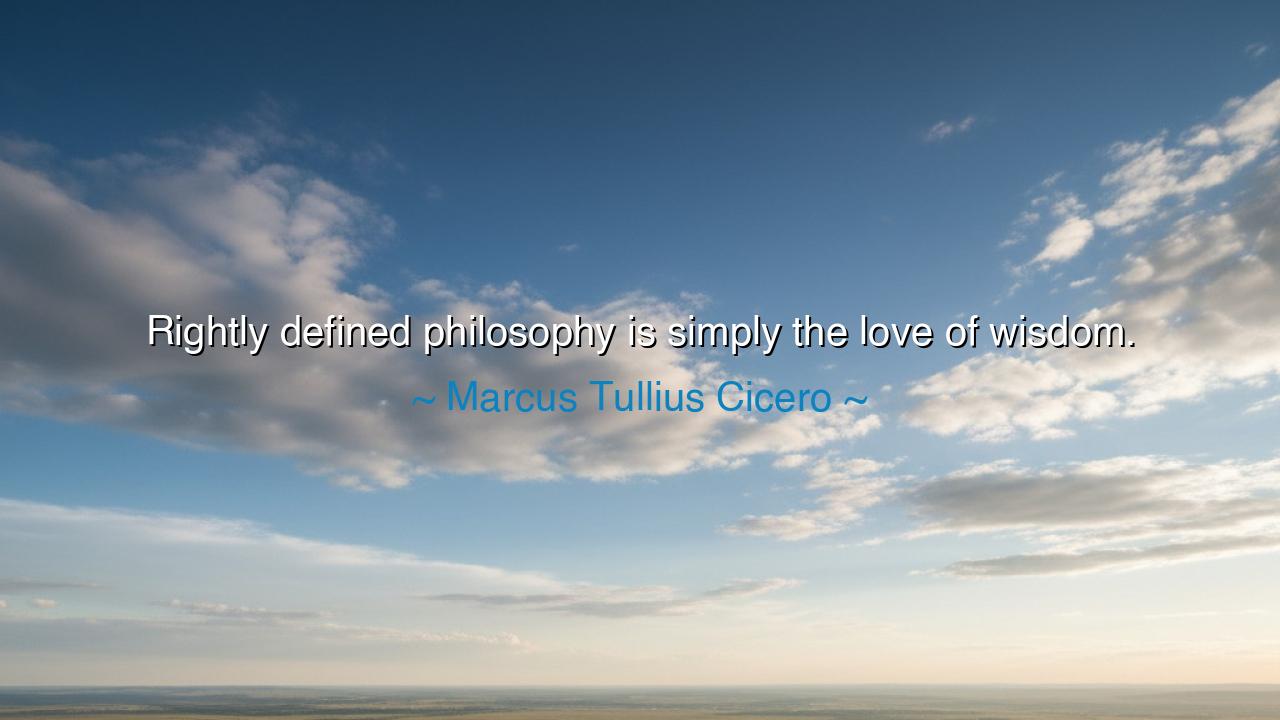
Rightly defined philosophy is simply the love of wisdom.






Hearken, O children of thought, to the enduring words of Marcus Tullius Cicero, who reveals the essence of human inquiry: that rightly understood, philosophy is the pure love of wisdom. He teaches that the pursuit of truth, virtue, and understanding is not mere abstraction, but a devotion of the soul to wisdom, guiding action, character, and the contemplation of the eternal. Herein lies a lesson for the ages: the philosopher seeks not wealth or acclaim, but the illumination that comes from discerning the nature of life, justice, and the self.
The origin of this reflection is rooted in Cicero’s life as a Roman statesman, orator, and thinker of the first century BCE. In his writings, he sought to define the purpose of human reason and the role of reflection in the governance of both self and society. Philosophy, in his vision, is a discipline of love and reverence for wisdom, cultivating understanding of moral truth, natural law, and the duties owed to one another and to the republic.
The meaning of this aphorism is profound: to practice philosophy is to cultivate a deep affection for learning, insight, and reflection. It is not a sterile pursuit of knowledge, but a passionate engagement with the questions that shape existence, morality, and human flourishing. The love of wisdom inspires courage, moderation, and justice, guiding the soul toward clarity and the virtuous conduct of life.
History provides luminous testimony to this teaching. Consider Socrates, who walked the streets of Athens questioning all that seemed certain, seeking to awaken in others the love of wisdom. Though he possessed no formal power, his devotion to truth, virtue, and reflection shaped the minds of generations, demonstrating that philosophy, when guided by love for wisdom, transforms character and society alike.
Moreover, this teaching extends beyond scholars and sages to every mortal who contemplates life with honesty and curiosity. The artisan who reflects upon beauty and proportion, the healer who seeks understanding of body and spirit, and the citizen who weighs justice and equity—all enact philosophy when they pursue knowledge and insight with reverence. Cicero reminds us that love for wisdom is the foundation of thoughtful living and enduring virtue.
O generations yet unborn, take this counsel into your hearts: cultivate the love of wisdom in all that you study, observe, and practice. Let your reason be guided by reflection, your actions tempered by insight, and your life illuminated by the eternal light of understanding. For in the devotion to philosophy, the soul attains clarity, virtue, and the eternal harmony that binds knowledge, morality, and the human spirit.






AAdministratorAdministrator
Welcome, honored guests. Please leave a comment, we will respond soon